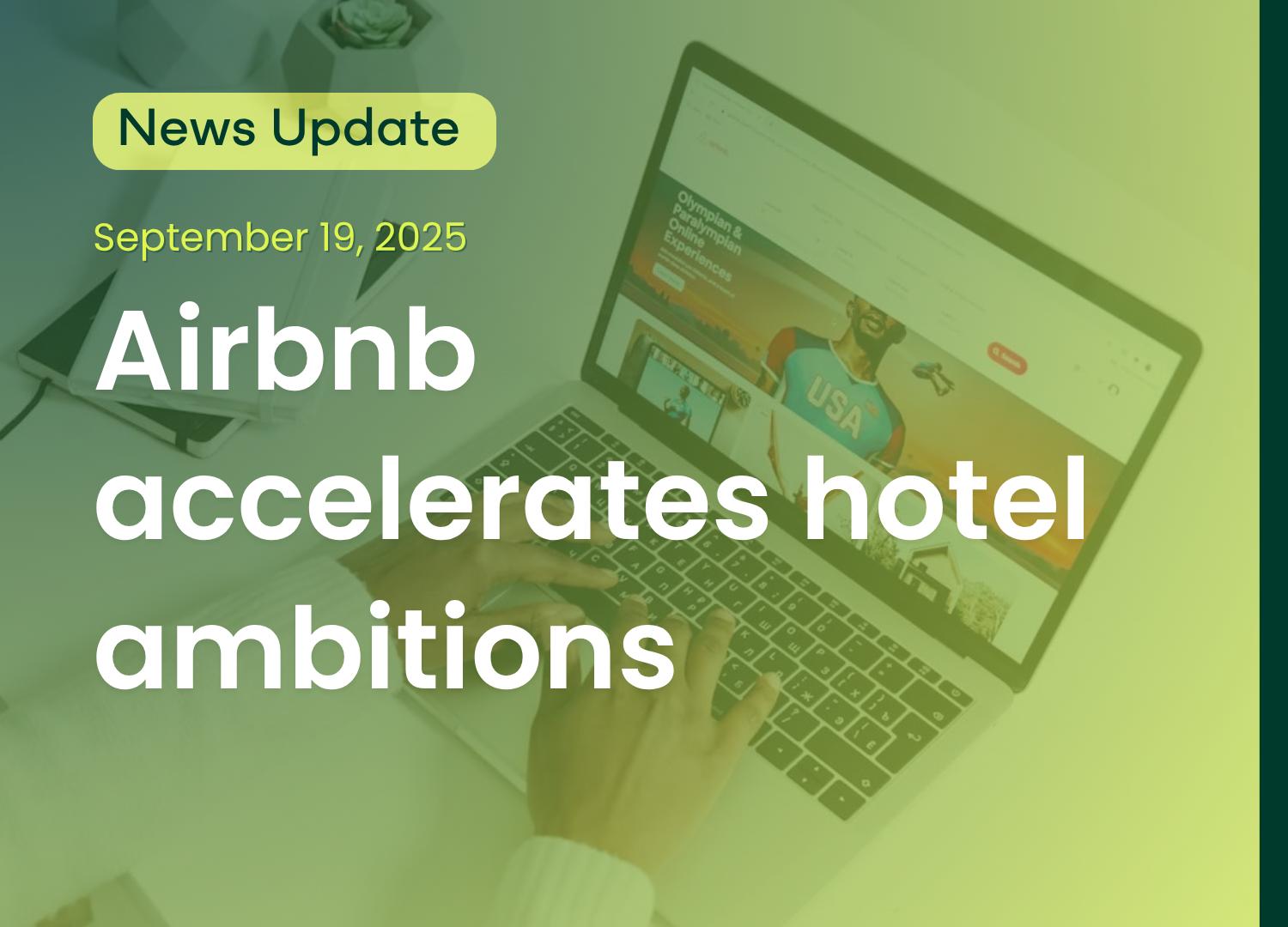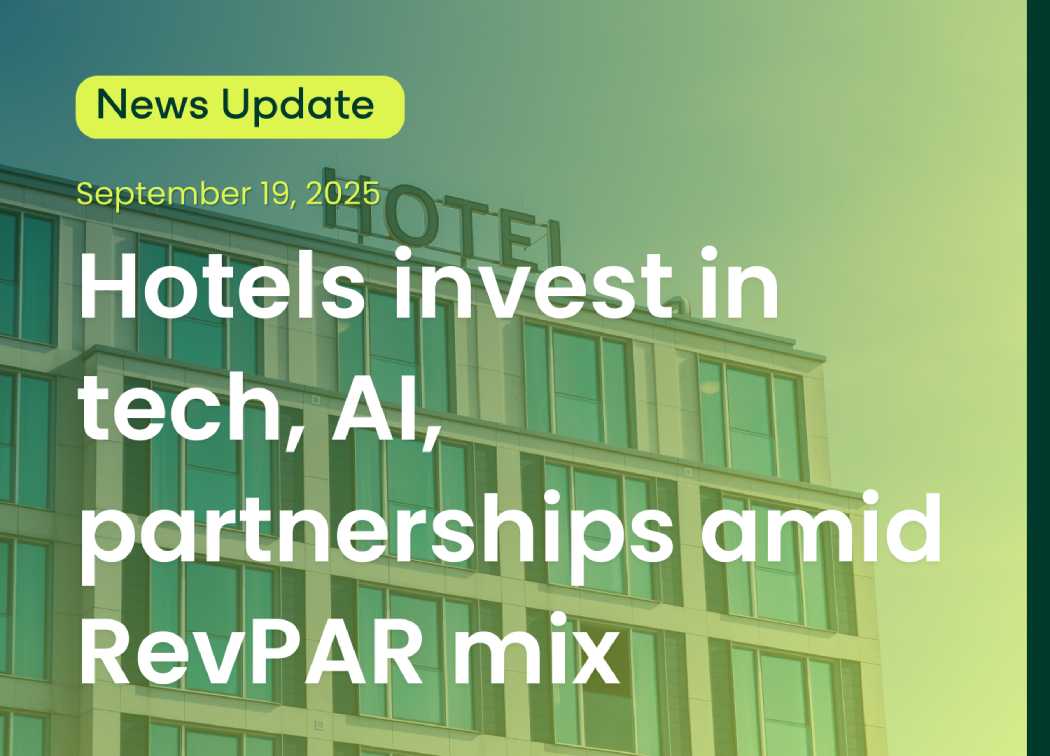AI, hotels, and travel trends reshape 2025 outlook
Airbnb is making bold moves to expand its hotel presence, launching a global hiring spree focused on boutique and independent properties. This push comes as the wider hospitality industry navigates mixed signals, from cautious optimism among hotel leaders to rapid advances in hospitality tech and shifting travel forecasts. Meanwhile, innovations like OpenAI’s new travel integrations and fresh market data highlight how technology and strategy are reshaping the future of travel and accommodation.

OpenAI transforms ChatGPT with travel and service app integrations
OpenAI is turning ChatGPT into a platform by integrating a range of partner apps including Expedia, Booking.com, and soon, Tripadvisor and Uber. This launch provides an accessible channel to ChatGPT’s extensive user base, presenting travel brands with innovative ways to enhance the booking experience directly from within ChatGPT conversations. Users can interact with real-time travel data, interactive maps, and personalized recommendations by engaging with these apps.
This development is significant in the evolving landscape of AI and travel, as it aligns with other industry advances and partnerships through platforms like Perplexity. The strategy boosts the visibility and utility of online travel agencies (OTAs) while highlighting the growing role of generative AI in travel planning. Although critics caution that user awareness and behavior require nurturing for such integrations to fully impact booking patterns, the move signals a shift towards more integrated service models in the travel industry.
Airbnb eyes hotel expansion with global hiring spree
Airbnb has announced plans to aggressively expand its hotel business, indicating a strong push towards increasing its presence in the hotel industry. The company is actively recruiting for numerous global positions related to hotel supply and management, with a focus on acquiring boutique and independent hotels to enhance its offerings. This expansion strategy builds on Airbnb's acquisition of HotelTonight, which specializes in last-minute travel bookings, and is set to broaden their inventory substantially.
Airbnb's careers portal currently lists around 180 job openings, including roles for supply acquisition and technology managers across the U.S. and EMEA regions, as well as senior market managers in major cities like Berlin, Barcelona, Canada, Texas, Mexico City, and Sydney. These positions will primarily support the company's burgeoning hotels team. Despite ambitious growth targets aiming for up to 100 million hotel room nights annually by 2028-2030, analysts caution that Airbnb may face hurdles in scaling its hotel listings as quickly as its home rental offerings. Nevertheless, this diversification could enhance Airbnb's market appeal, even as hotel bookings remain a secondary focus compared to its core home rental business.
U.S. inbound travel forecast downgraded with postponed recovery
Inbound travel to the U.S. is expected to decline by 6.3% in 2025, marking the first drop since 2020, as Canadian visitors dwindle and growth from other countries stagnates. This fall diverges sharply from earlier projections of a rebound and has delayed the anticipated return to pre-pandemic visitor levels until 2029. Previously, a full post-pandemic recovery was expected by 2026, with forecasts predicting an 8.8% increase in visits.
U.S. destinations are actively rolling out campaigns intended to boost international tourism. However, these efforts are facing significant headwinds such as increased visa fees and lingering negative sentiments towards U.S. travel policies, which threaten to further impede the recovery of the inbound travel market. By addressing these barriers, the industry hopes to revitalize interest and accelerate the path to normalcy.
Hotel leaders see future growth despite initial challenges in 2025
The first eight months of 2025 have posed significant challenges for the hotel industry, with development being affected by tariffs, geopolitical tensions, and a decreased number of travelers. These factors contributed to a climate of unpredictability, as highlighted by executives from major hospitality companies like Hilton, IHG Hotels & Resorts, and Hyatt during a panel at the Lodging Conference in Phoenix. Tariffs have been a significant concern; they were expected to be reduced early in the year, but geopolitical issues have delayed these efforts.
Despite these hurdles, industry leaders like Choice Hotels International's David Pepper and IHG's Kevin Schramm remain optimistic. They believe that the downturn could offer strategic growth opportunities, such as investing in underdeveloped markets like Canada where tourism dynamics are evolving. Furthermore, areas near AI data center investments are anticipated to experience market shifts that could favor hotel growth. The current economic climate, marked by reduced interest rates, presents an opportune moment for acquisitions and development, setting the stage for hotels to emerge as market leaders when the economic conditions stabilize further.
Leaders also pointed to the Federal Reserve's recent rate cut as a catalyst for increased deal activity in the coming year, encouraging developers to seize the moment to invest. With moderate supply growth projected for next year, supported by the upswing in demand for upscale and extended stay segments, the industry is poised to recover and expand. This optimistic outlook reflects a strategic focus on resilience and innovation amidst the evolving challenges in the market.
Hospitality tech predictions for 2026 by IDeaS
IDeaS has released its annual eBook, "Future Forecast: Hospitality Tech Predictions for 2026," which offers critical insights for hospitality leaders navigating an increasingly complex industry landscape. The report, supported by survey data from hoteliers and tech partners, identifies major trends including the simplification of technology stacks, integration of commercial strategies, and the advancement towards AI-driven hotel operations.
Key insights emphasize the importance of cohesive tech strategies, yet only 54% of hoteliers currently use integrated tools, indicating room for growth. AI is a focal point, with nearly 89% of hoteliers planning application expansions, aiming to enhance operations through intelligent assistants and enhanced guest experiences. Additionally, the eBook stresses the need for unified sales, marketing, and revenue teams to optimize market responses and increase resilience against future disruptions. Conversations around sustainability suggest integrating eco-efficient practices with business goals, though actual implementation appears to lag behind intentions. Overall, the publication serves as a strategic guide for hospitality businesses, enabling them to innovate and remain competitive.
Hotel industry navigates AI integration with caution
Major hotel chains are testing artificial intelligence tools across their operations, yet leaders at a Destination AI forum noted challenges in deploying AI beyond routine tasks. Although back-office automation is progressing, trepidation lingers concerning AI's customer-facing applications, integration issues, and security concerns. Companies like IHG, Wyndham, and Hilton are focusing on optimizing contact centers by automating simple queries, which has shown clear benefits.
The U.S. hotel sector remains cautious about adopting AI for more complex operations, particularly due to the cultural and economic context that makes robot adoption less feasible compared to markets like China. Additionally, technical hurdles such as outdated technology and a lack of robust data infrastructure impede the full-scale deployment of AI-driven enhancements. Consequently, while AI offers promising improvements, extensive adoption across customer interfaces is stymied, leaving room for strategic growth in specific back-end processes instead.




.svg)
.svg)


.jpg)


%201.avif)

